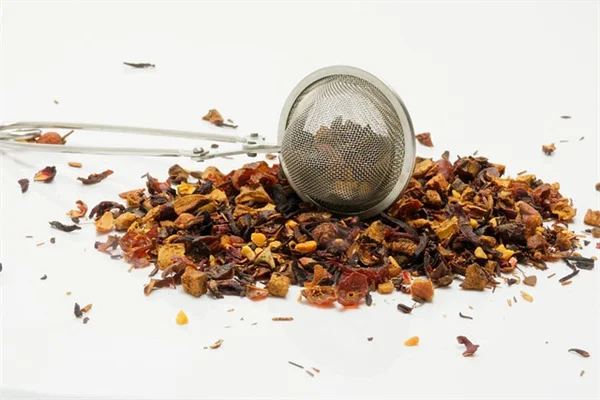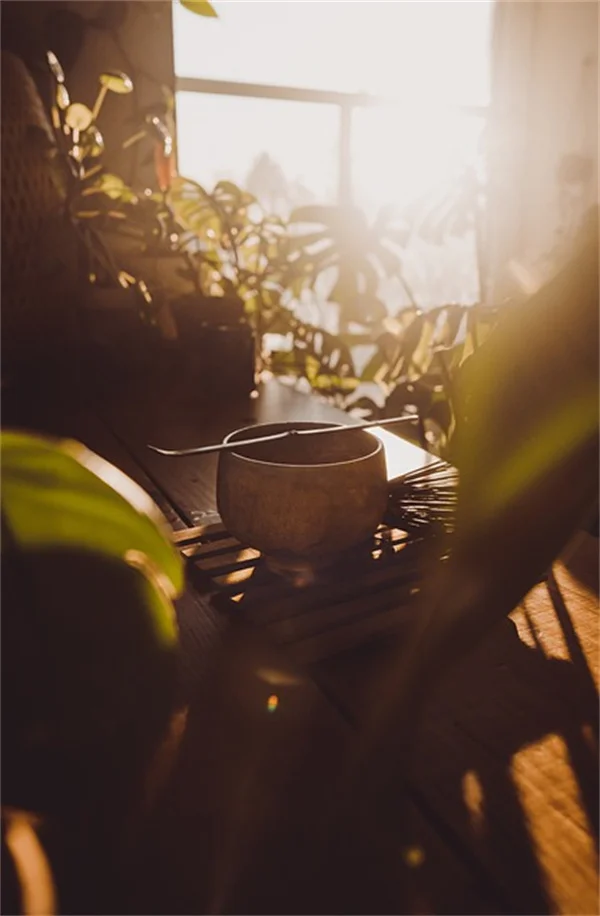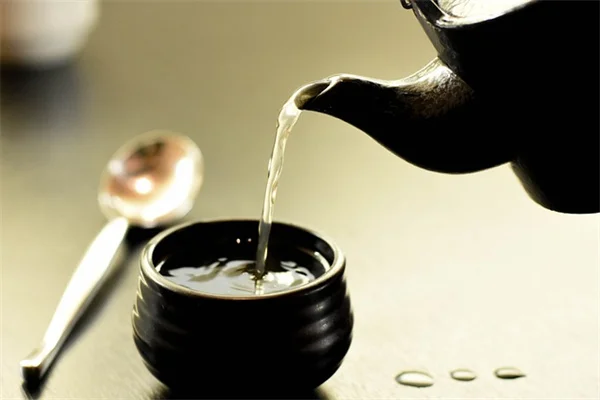Does your sleep tracker determine how good you'll feel tomorrow? New research says no - your sleep perception impacts your mood and well-being more than any device data. A groundbreaking University of Warwick study proves that when you believe you slept well, you actually feel better the next day - regardless of what your sleep tracker reports.I've been testing these findings myself, and here's the game-changer: how you think about your sleep quality matters more than the numbers. Whether you're using fancy wearables or just going by gut feeling, this article will show you why your mindset about sleep is the real secret to better mornings and happier days.
E.g. :FDA-Approved Diabetes Meds for Teens: What Parents Need to Know
- 1、Your Sleep Perception Shapes Your Day
- 2、Hacking Your Sleep Perception
- 3、Morning Mindset Makeover
- 4、The Sweet Spot: Balancing Tech and Intuition
- 5、The Hidden Science Behind Sleep Perception
- 6、Sleep's Surprising Connection to Creativity
- 7、Sleep and Social Connections
- 8、Technology's Double-Edged Sword
- 9、FAQs
Your Sleep Perception Shapes Your Day
The Power of Believing You Slept Well
Ever wake up feeling like a zombie but your sleep tracker says you got "8 hours of quality rest"? Here's the funny thing - your mood depends more on what you believe about your sleep than what your fancy gadget reports. A recent University of Warwick study proved this with 100 young adults tracking their sleep for two weeks.
The researchers discovered something fascinating: when participants thought they slept better than usual, they reported higher life satisfaction and more positive emotions the next day - regardless of what their wrist monitors showed. Dr. Anita Lenneis, who led the study, told us: "The actigraphy data (that's the sleep tracking tech) didn't predict next-day wellbeing at all. It was all about personal perception."
Why Your Brain Outsmarts Sleep Trackers
Think about this: Can a device measure how refreshed you feel after dreaming about winning the lottery versus nightmares about work? Of course not! Sleep psychologist Dr. LeMeita Smith explains that our sleep experience involves emotional and psychological factors no gadget can quantify.
Here's a quick comparison of what sleep trackers measure versus what actually affects your morning mood:
| What Sleep Trackers Measure | What Really Affects Your Mood |
|---|---|
| Movement during sleep | Your satisfaction with sleep quality |
| Time spent in bed | How rested you believe you are |
| Heart rate patterns | Positive/negative thoughts upon waking |
Hacking Your Sleep Perception
 Photos provided by pixabay
Photos provided by pixabay
Bedtime Rituals That Actually Work
Dr. Naheed Ali from Sleep Bubble gave us these pro tips for better sleep nights (and better sleep perceptions):
1. Become a sleep schedule robot - Same bedtime and wake-up time every single day, even weekends. Your body loves predictability more than your dog loves walk time.
2. Create a "wind-down" routine - Read fiction (no work emails!), listen to calming music, or try simple breathing exercises. I personally do 5 minutes of stretching while listening to ocean sounds - works like magic.
Your Bedroom: The Ultimate Sleep Cave
Here's a question I bet you've never considered: Does your bedroom look like a cozy nest or a late-night office? For quality sleep, you need darkness (blackout curtains are game-changers), quiet (earplugs if needed), and cool temperature (around 65°F is ideal).
And please - ban phones and laptops from bed! That blue light tricks your brain into thinking it's daytime. I made this mistake for years until I noticed how much better I slept after switching to old-school books before bed.
Morning Mindset Makeover
Reframing Your Sleep Story
When you wake up feeling tired, try this trick from Dr. Smith: focus on any positive aspect of your sleep. Maybe you had an interesting dream, or perhaps you stayed comfortable all night. Even telling yourself "I got some rest" works better than groaning "I'm exhausted."
I tested this myself last week. Instead of my usual "Ugh, only 6 hours" complaint, I tried "Hey, I fell asleep quickly and didn't wake up once!" Surprisingly, I had way more energy that day.
 Photos provided by pixabay
Photos provided by pixabay
Bedtime Rituals That Actually Work
We all carry silly sleep myths like "I must get 8 hours or I'm useless." News flash - sleep needs vary! Some people thrive on 6 hours, others need 9. The key is noticing what actually works for YOU rather than chasing some perfect number.
Next time you're tempted to check your sleep score, ask yourself: "Do I feel alert and positive today?" That answer matters more than any algorithm's opinion. As Dr. Ali says, "Your perception writes the story of your day - make it a good one."
The Sweet Spot: Balancing Tech and Intuition
When to Trust (and Ignore) Your Sleep Data
Sleep trackers aren't useless - they're great for spotting patterns over time. Maybe you'll notice you sleep worse after late dinners or when stressed about work. But day-to-day? Your gut feeling about sleep quality is the real MVP.
Try this experiment: For one week, rate your sleep quality each morning BEFORE checking your device. See if your natural assessment predicts your day better than the numbers do. Most people find their intuition is surprisingly accurate!
Creating Your Personal Sleep Success Formula
Here's what I've learned from sleep experts and personal trial-and-error:
1. Consistency beats perfection - Going to bed around the same time nightly matters more than occasional "perfect" sleep nights
2. Your thoughts shape your reality - Believing "I slept decently" often leads to better days than "My tracker says I failed"
3. Small tweaks make big differences - Something as simple as cooler room temperature or earlier dinner time can dramatically improve sleep quality
Remember what the research shows: You have more power over your sleep experience than any device does. So tonight, try relaxing into bed with confidence instead of anxiety about "getting enough" sleep. Your tomorrow-self will thank you!
The Hidden Science Behind Sleep Perception
 Photos provided by pixabay
Photos provided by pixabay
Bedtime Rituals That Actually Work
Did you know your brain can actually rewrite your sleep memories overnight? Neuroscientists at Harvard discovered that our morning recollection of sleep quality often differs dramatically from what actually happened. We tend to remember the last 30 minutes before waking as representative of the entire night - which explains why waking during deep sleep feels so awful!
Here's a wild example from my own life: Last month, my sleep tracker showed terrible restlessness, but I woke up feeling great because I'd been dreaming about beach vacations. Meanwhile, my partner's tracker showed perfect sleep metrics, but she felt exhausted after dreaming about running from monsters all night. Our brains literally edited our sleep experiences based on emotional content - no algorithm can account for that!
The Cultural Sleep Paradox
Ever wonder why some cultures thrive on afternoon siestas while others push through with caffeine? Anthropological research reveals fascinating sleep norm variations:
| Culture | Sleep Pattern | Perceived Benefits |
|---|---|---|
| Spanish | Biphasic (siesta + night sleep) | Improved afternoon productivity |
| Japanese | Short night sleep + napping | Adaptation to long work hours |
| American | Monophasic (single sleep block) | Alignment with 9-5 workday |
This diversity proves there's no one "right" way to sleep. Your ideal pattern might look completely different from your neighbor's - and that's perfectly okay!
Sleep's Surprising Connection to Creativity
How Dreams Fuel Innovation
Here's something cool you probably never considered: What if your weird dreams are actually boosting your problem-solving skills? Research shows REM sleep (when most dreaming occurs) enhances creative thinking by up to 40%! Famous examples include Paul McCartney composing "Yesterday" in a dream and Mary Shelley conceiving Frankenstein during a vivid nightmare.
I started keeping a dream journal last year, and it's been mind-blowing. Last week, I woke up with a solution to a work problem that had stumped me for days. The answer came in a dream where my spreadsheet turned into a musical where singing numbers revealed the error! Your sleeping brain makes connections your waking mind would never consider - that's worth celebrating even if you "only" got 6 hours.
The Nap Revolution
Silicon Valley's latest productivity hack isn't some fancy app - it's the humble power nap! Companies like Google and Zappos now have nap pods because research shows:
- A 20-minute nap improves alertness more than 200mg of caffeine
- NASA found pilots' performance improved 34% after strategic napping
- Memory consolidation happens during short daytime sleeps
Next time you feel that 3pm slump, don't reach for another coffee - try a brief nap instead. Set your phone timer for 20 minutes, close your eyes, and let your brain reboot. You'll wake up feeling like you got bonus sleep hours!
Sleep and Social Connections
How Your Sleep Affects Relationships
Here's a relationship tip nobody tells you: Couples who sync their sleep schedules report higher satisfaction. University of California researchers found that mismatched bedtimes create what they call "sleep divorce" - not actual divorce, but emotional distance that accumulates over time.
My friends Jen and Mark solved this creatively. He's a night owl, she's an early bird. They compromised with "cuddle time" at her bedtime, then he stays up quietly. On weekends, she joins him for late movies. Finding your unique sleep harmony matters more than rigid schedules - it's about respecting each other's rhythms.
The Sleep-Emotion Feedback Loop
Ever notice how everything feels worse when you're tired? That's not just in your head - it's neuroscience! Sleep deprivation amplifies negative emotions by up to 60% while reducing positive emotion recognition. But here's the hopeful part: just one good night's sleep can reset your emotional balance.
Try this simple trick tonight: Before bed, write down three positive things from your day. This "gratitude log" primes your brain to process positive memories during sleep. You'll likely wake up with better mood - regardless of what your sleep tracker says!
Technology's Double-Edged Sword
The Dark Side of Sleep Tracking
While sleep tech can be helpful, it's created a new anxiety called "orthosomnia" - obsessive pursuit of perfect sleep data. Sleep specialist Dr. Barry Krakow reports patients who can't sleep because they're so anxious about their sleep scores! When did we start trusting gadgets more than our own bodies?
The solution isn't abandoning tech, but using it wisely. Check your weekly patterns, not daily scores. Notice trends, not nightly "grades." And remember - Thomas Edison slept in bursts, Winston Churchill napped daily, and Margaret Thatcher claimed to need just 4 hours. There's no universal perfect sleep formula.
Ancient Wisdom Meets Modern Science
Interestingly, many traditional sleep practices now have scientific backing:
- Ayurvedic "early to bed" aligns with our natural circadian rhythms
- Chinese medicine's sleep schedules match our hormonal cycles
- Native American sleep positions reduce sleep apnea risk
Maybe our ancestors knew something we're just rediscovering with fancy gadgets. Tonight, try unplugging an hour before bed, drinking some chamomile tea, and listening to your body's natural signals. You might find you sleep better without all the data-driven stress!
E.g. :Relationship Between Sleep Quality and Mood: Ecological ...
FAQs
Q: Why does my perception of sleep affect me more than actual sleep data?
A: Here's the fascinating truth - your brain creates your reality based on what you believe, not just cold hard data. The Warwick study found that participants who thought they slept well reported better moods, even when their sleep trackers said otherwise. We experience sleep through multiple filters - stress levels, daily experiences, and even our expectations. That's why two people with identical sleep data can wake up feeling completely different. I recommend focusing less on the numbers and more on how you actually feel when your alarm goes off.
Q: How can I improve my sleep perception if I wake up feeling tired?
A: Great question! Try this simple mindset shift from sleep psychologists: focus on any positive aspect of your night's rest. Maybe you fell asleep quickly, stayed comfortable, or had pleasant dreams. I've started practicing this myself - instead of groaning "I only got 6 hours," I now say "I slept deeply during those hours." Surprisingly, this small change gives me more morning energy. Also, challenge unrealistic thoughts like "I must get 8 perfect hours." Your body knows what it needs better than any sleep rulebook.
Q: Are sleep trackers completely useless then?
A: Not at all! While they shouldn't dictate your mood, trackers can be valuable for spotting long-term patterns. I use mine to notice how late meals or stressful days affect my rest. The key is balance - check your data occasionally for trends, but don't let it define your day. Here's my personal rule: I assess how I feel first, then look at the numbers. Often, they align - but when they don't, I trust my gut. Remember, these devices measure movement and heart rate, not your subjective experience of refreshment.
Q: What's the most effective way to actually sleep better?
A: After interviewing sleep experts and testing countless methods, I swear by these three fundamentals: First, become a sleep schedule robot - same bedtime and wake time daily (yes, weekends too!). Second, create a pre-sleep ritual that tells your brain "time to wind down" - I do light stretching with ocean sounds. Third, optimize your bedroom like a sleep cave: cool, dark, and tech-free. The game-changer for me was banning phones from bed - that blue light was sabotaging my sleep more than I realized!
Q: Can changing my sleep thoughts really improve my whole day?
A: Absolutely, and here's why this works: Your expectations create a self-fulfilling prophecy. When you wake up thinking "I slept terribly," you're programming yourself for a groggy day. But when you focus on even small positives ("At least I got some rest"), you set a better tone. I experimented with this last month - on days I emphasized good sleep aspects, I had more energy despite similar sleep duration. It's not about lying to yourself, but about balancing perspective. As sleep expert Dr. Smith told me, "Your sleep story becomes your daily reality."


